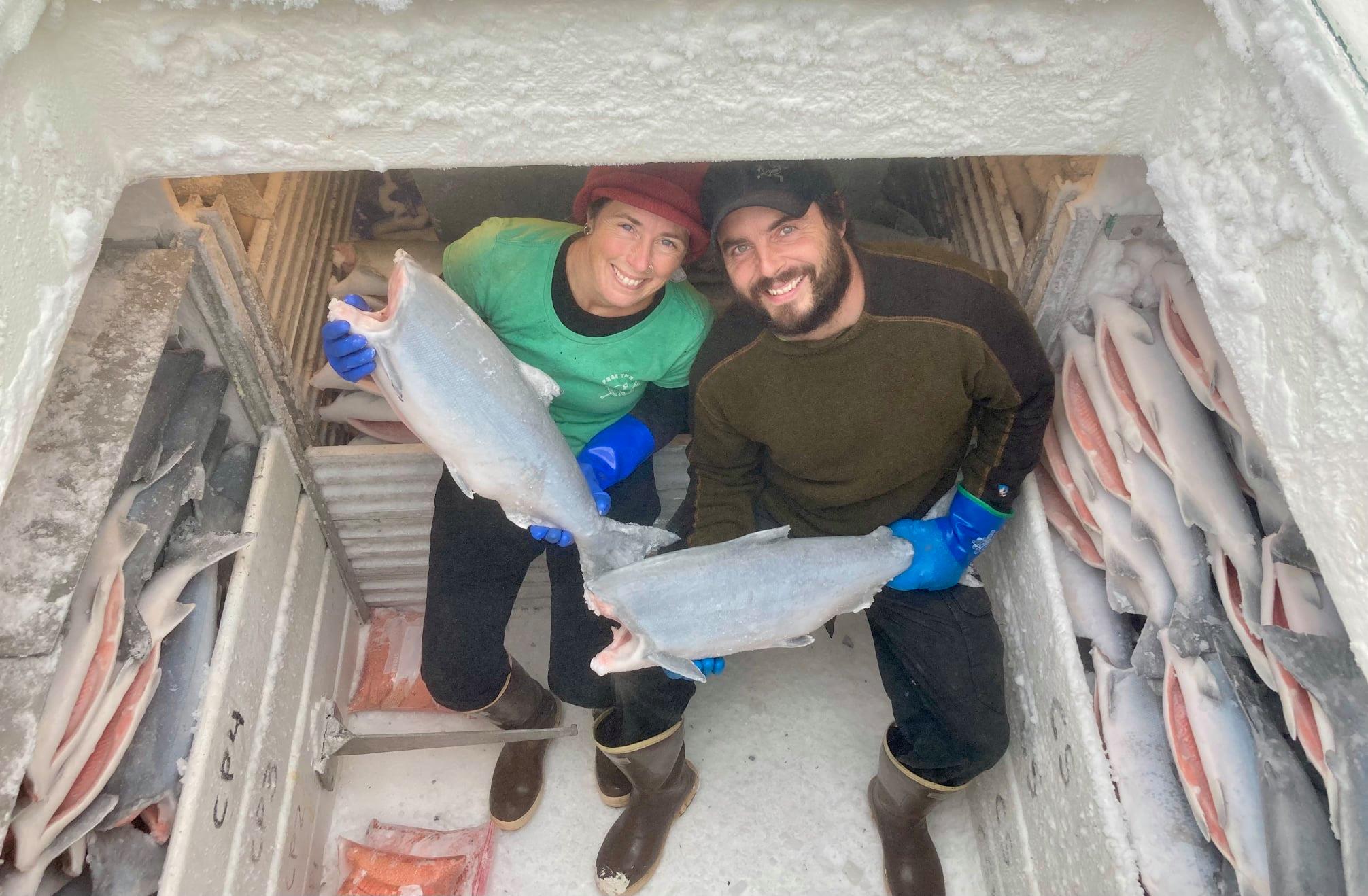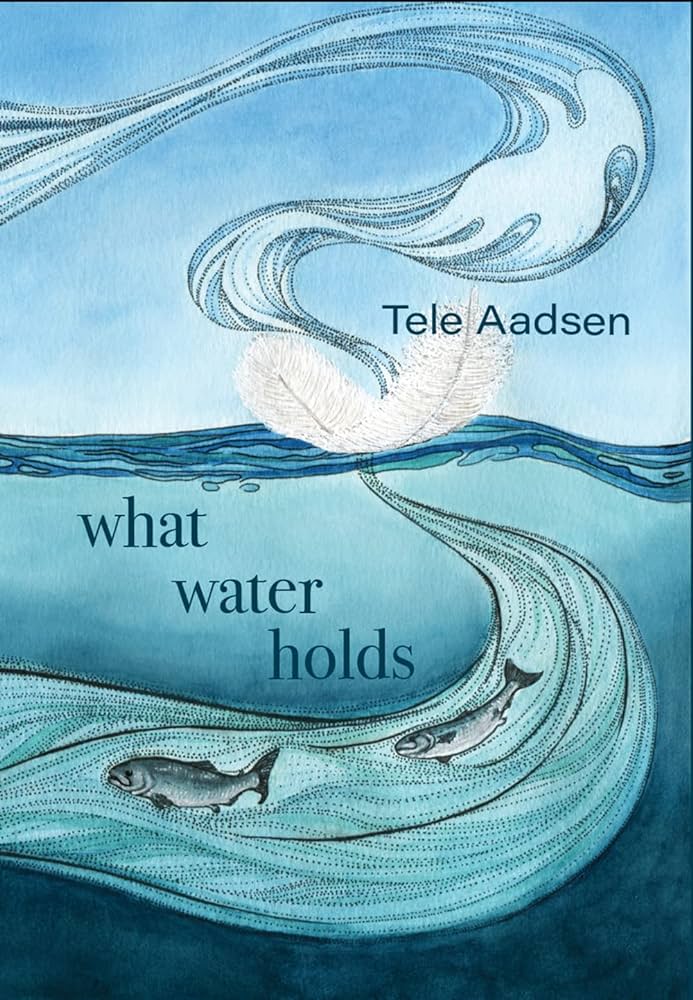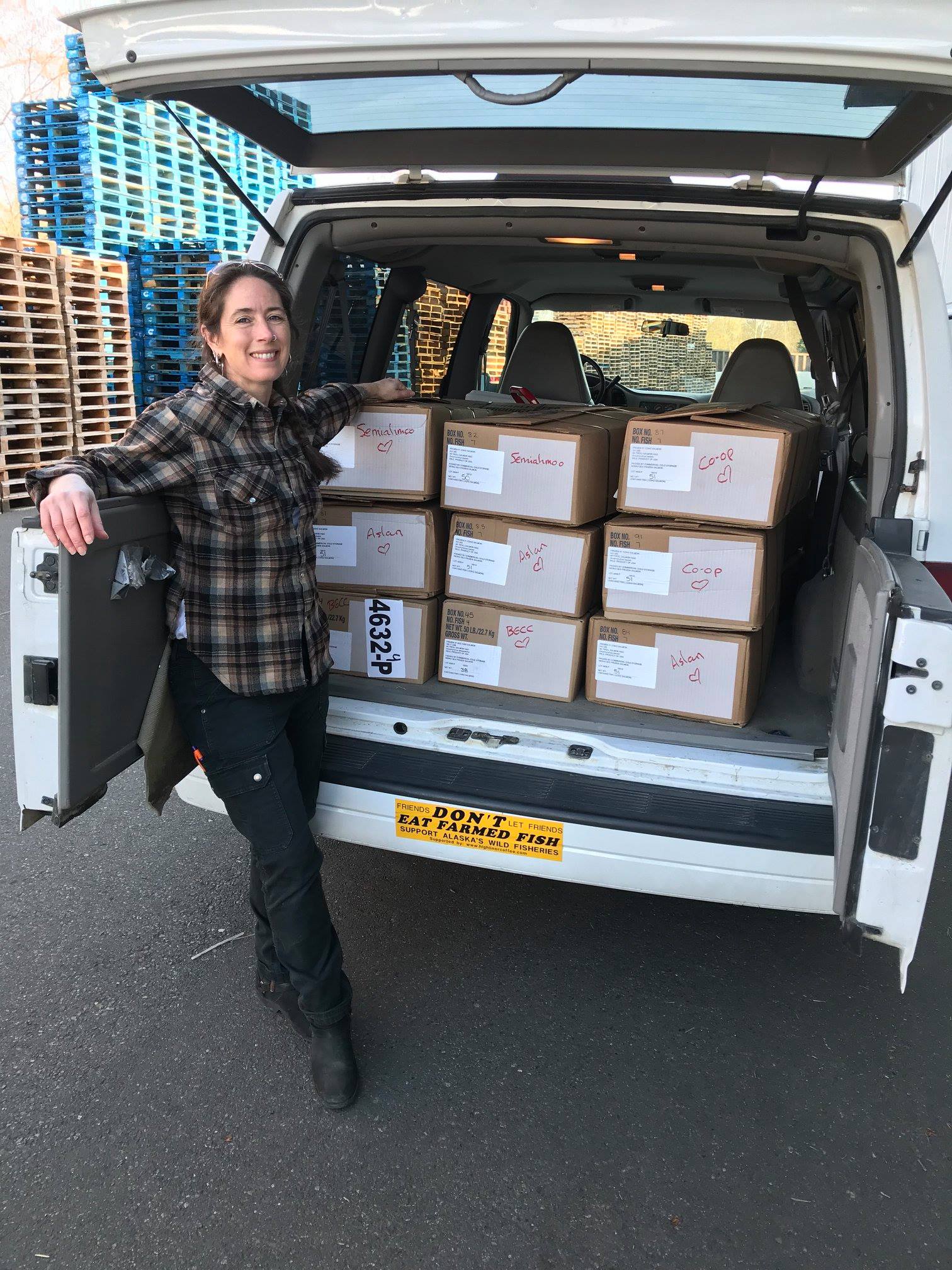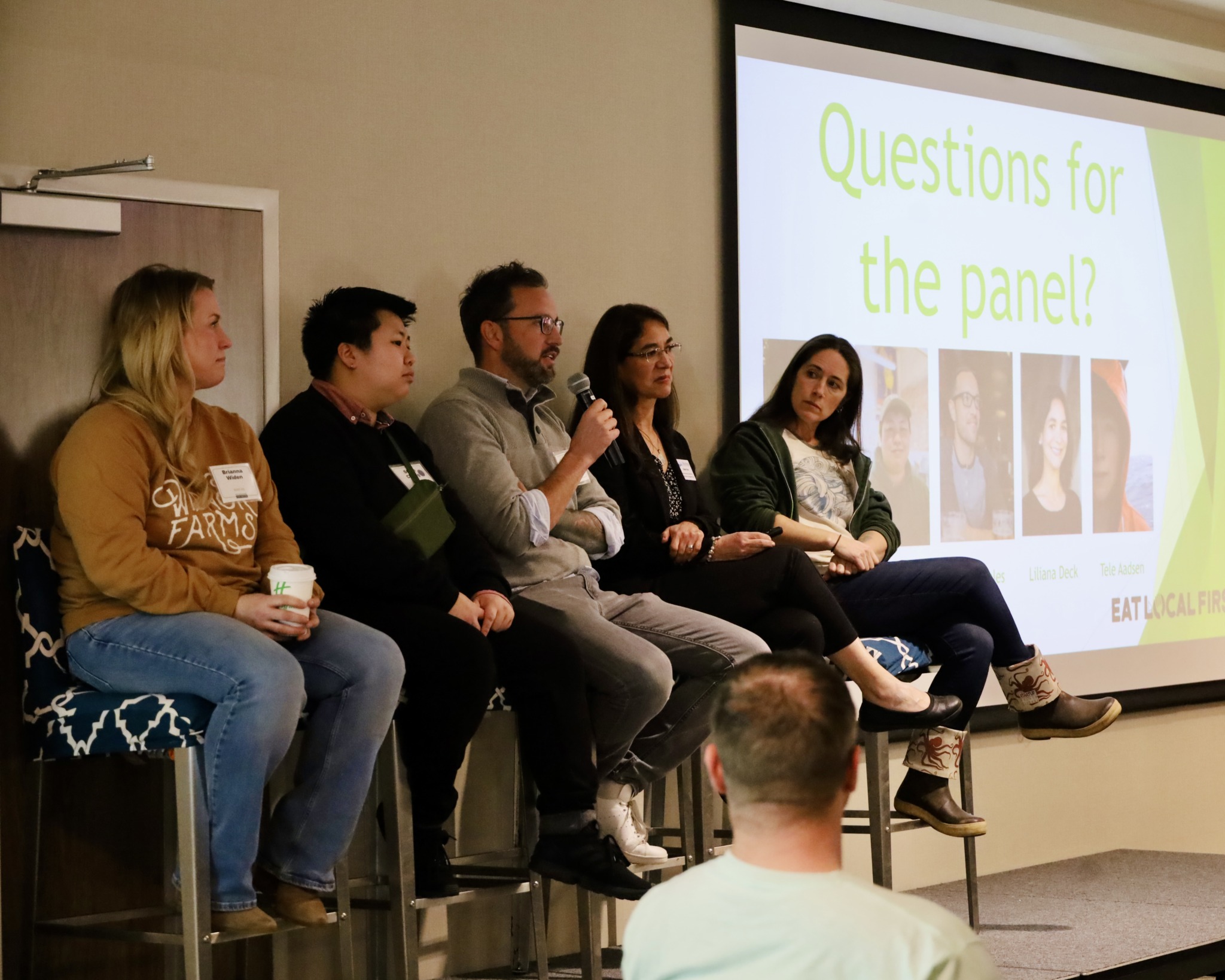
Tele Aadsen is a female commercial fisherman and writer, connecting people to salmon through the stories she shares and the fish she catches. She knows first-hand how the power of storytelling shapes our relationships to the food we eat and the folks who grow, raise, harvest, and catch it. Both fishing and writing have been integral to her life and her work for as long as she can remember.
“I came to commercial fishing as a child,” Tele shares. “It’s something I grew up doing with my parents at a small-scale family fishery. Since 2006, I’ve been fishing with my partner who’s also a boat kid. We fish the boat that he grew up on [the Nerka]. I know that a lot of folks want to know the stories behind their food. With seafood in particular, they want to feel good about their choices and what’s behind the choices they’re making – how it was handled, how the fishery is managed.”
Not only are people interested in learning more about how their food was grown or caught, stories are also a way of sharing the reality of what it’s like to fish or farm. “With both farming and fishing, a lot of folks don’t have any notion of how complex our small-scale industries are. I want to be able to share that from the inside, to be a trustworthy narrator. The majority of our customers are wholesale local restaurants and food co-ops. We were really lucky that they cared enough to read my over-long emails about [our boat and our business], and that they shared those emails with their staff and in turn their customers.”
Tele shares the story of her life aboard the Nerka with customers and restaurants, but she wanted to be able to share it with a larger audience. That’s one of the reasons she wrote her memoir, What Water Holds, ‘a series of lyrical essays first shared at Oregon’s FisherPoets Gathering’.
She finds these aspects of her work – fishing and writing – deeply rewarding. “Time out on the boat is good for my own mental wellbeing. Away from land, away from all the noise, just being with the elements and the work. And it’s an incredible privilege to get to share the harvest, the fruits of our labor, with land friends who recognize and value all that went into it. It’s so meaningful that folks have shared their time and heart reading What Water Holds and found places that resonate with them, even if they’ve never been out on a boat or even if they don’t eat seafood.”


Tele also hopes to raise awareness about regulations in fishing. “I hope our land friends can have a better understanding how small scale and tightly managed our family fisheries are. Whether they’re tribal or non-tribal, there’s a huge amount of supervision and research that goes into a single season. We work closely with biologists managing our seasons. It’s a big issue, and even more so now. That level of conservation and supervision isn’t taking place in some factory fisheries. We often all get lumped into one whole, and that’s not the case.”
Tele notes that the triumphs and struggles of fishing echo those of farming, and that the sense of community in this region brings both groups together. “It’s been really rewarding to see the level of collaboration and partnerships here, and that expand between fishers and farmers. We’re recognizing the similarities we all share and how we can lift each other up.”
Tele recently shared her stories at the Eat Local First Trade Meeting, where those collaborations and partnerships were grown and celebrated. “One of the things that came out of the Trade Meeting for me was the acknowledgement of how small a lot of us are, and how much we’re trying to do on our own. It’s not sustainable, it’s not healthy, and we don’t have to – we can work together. More and more I see that being nurtured, whether it’s through Eat Local First or Dockside Market. In this Trade Meeting, there was an emphasis on the inclusion of local farms and fisheries. We’re on such similar paths, and it’s important that both land and sea are seated at the same table.”
The Trade Meeting brought together more than 150 farmers, fishers, and other food system folks to share their stories and learn from others’. It built business relationships but also cultivated a sense of solidarity – the knowledge that those who labor with love to feed their community are not alone. They have collaborators, resources, and advocates behind them.

Photo courtesy of Joyco Digital

Tele’s stories from the sea and from her heart shine a light on the truth of what it takes to run a small-scale, sustainable fishery. And stories are powerful, as the Trade Meeting demonstrated – they show us where we’ve been, where we are, and illuminate a path forward.
If you’re a farmer, fisherman, chef, or food business owner, consider joining us to connect and share stories at the Eat Local First Mixer at Cloud Mountain Farm Center on Tuesday, May 21. More details to come.
